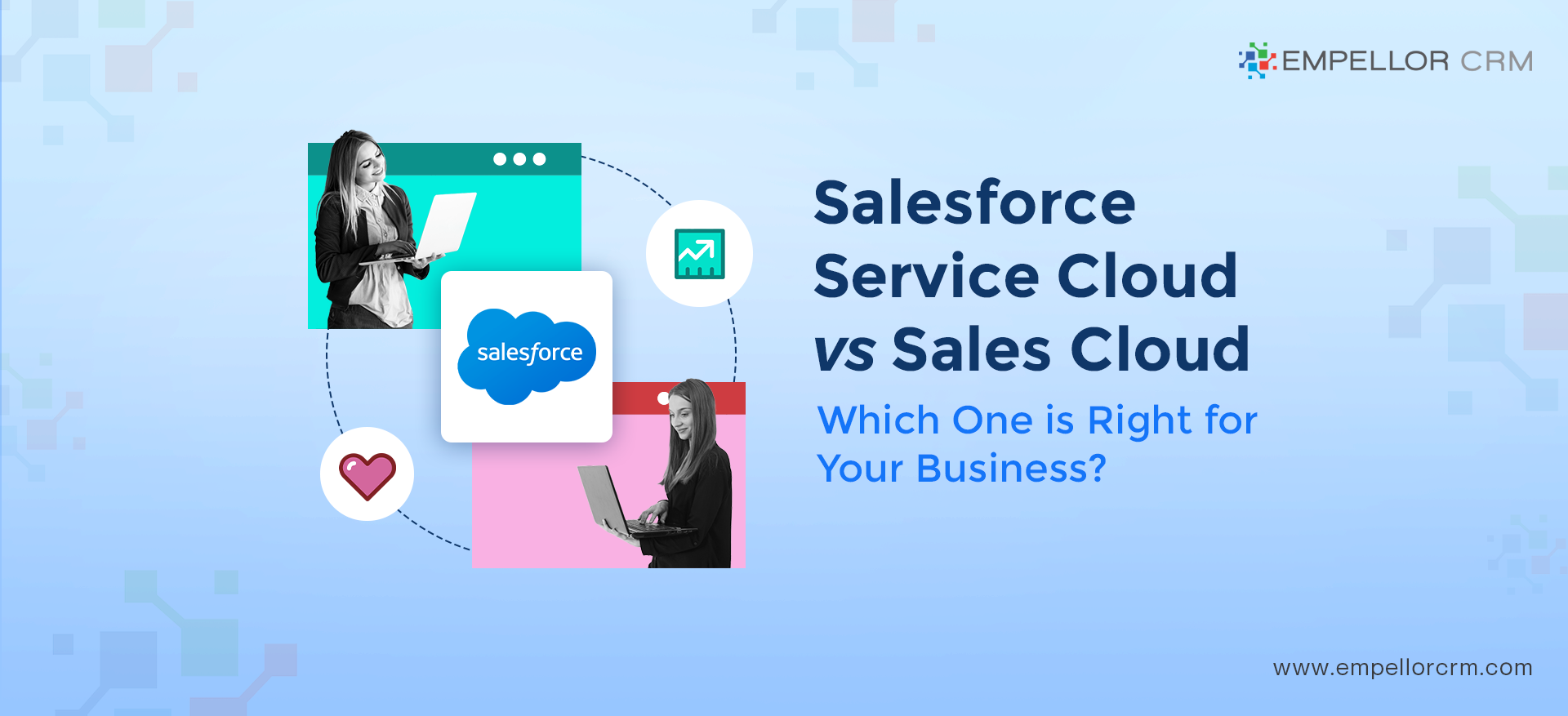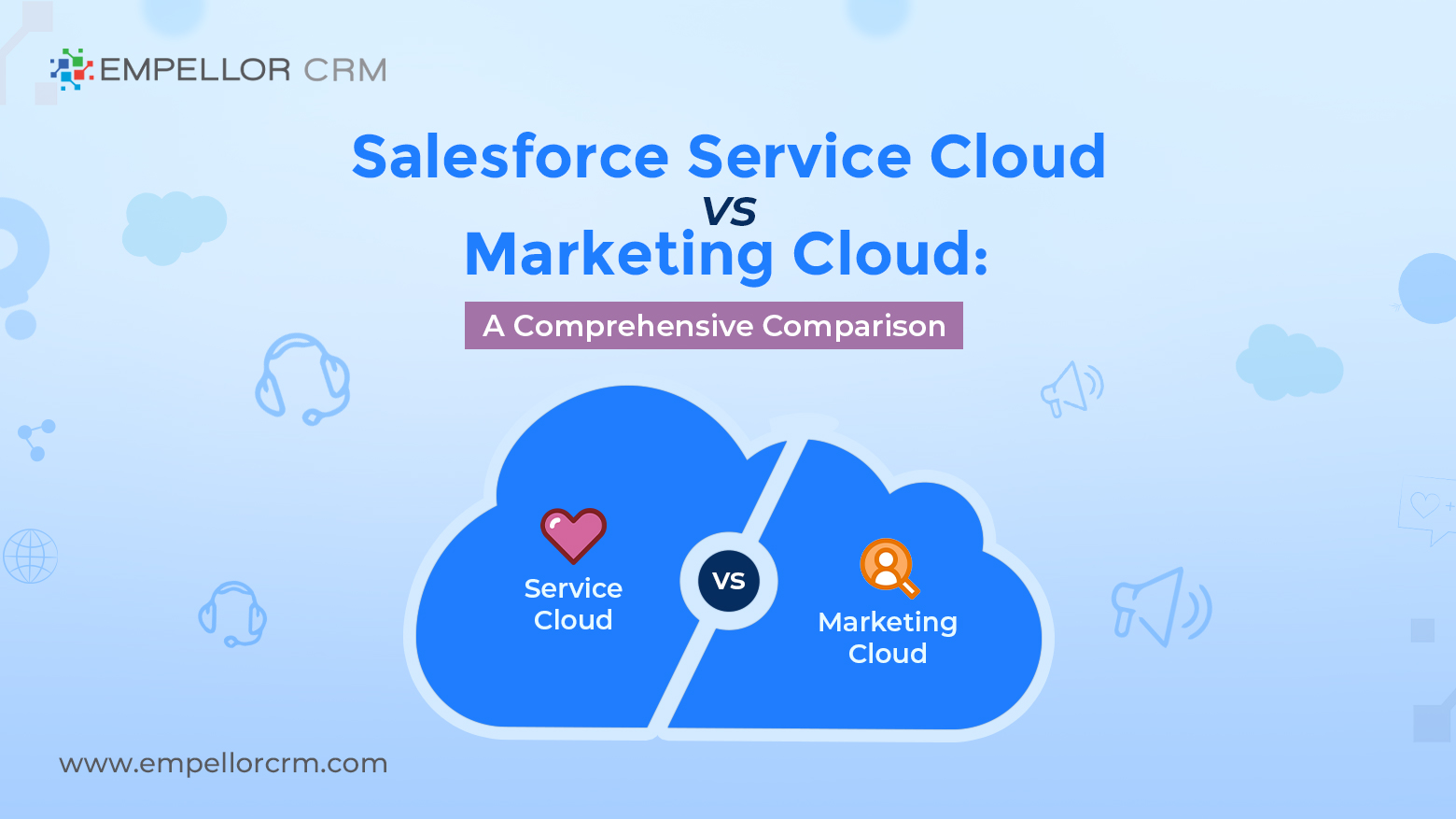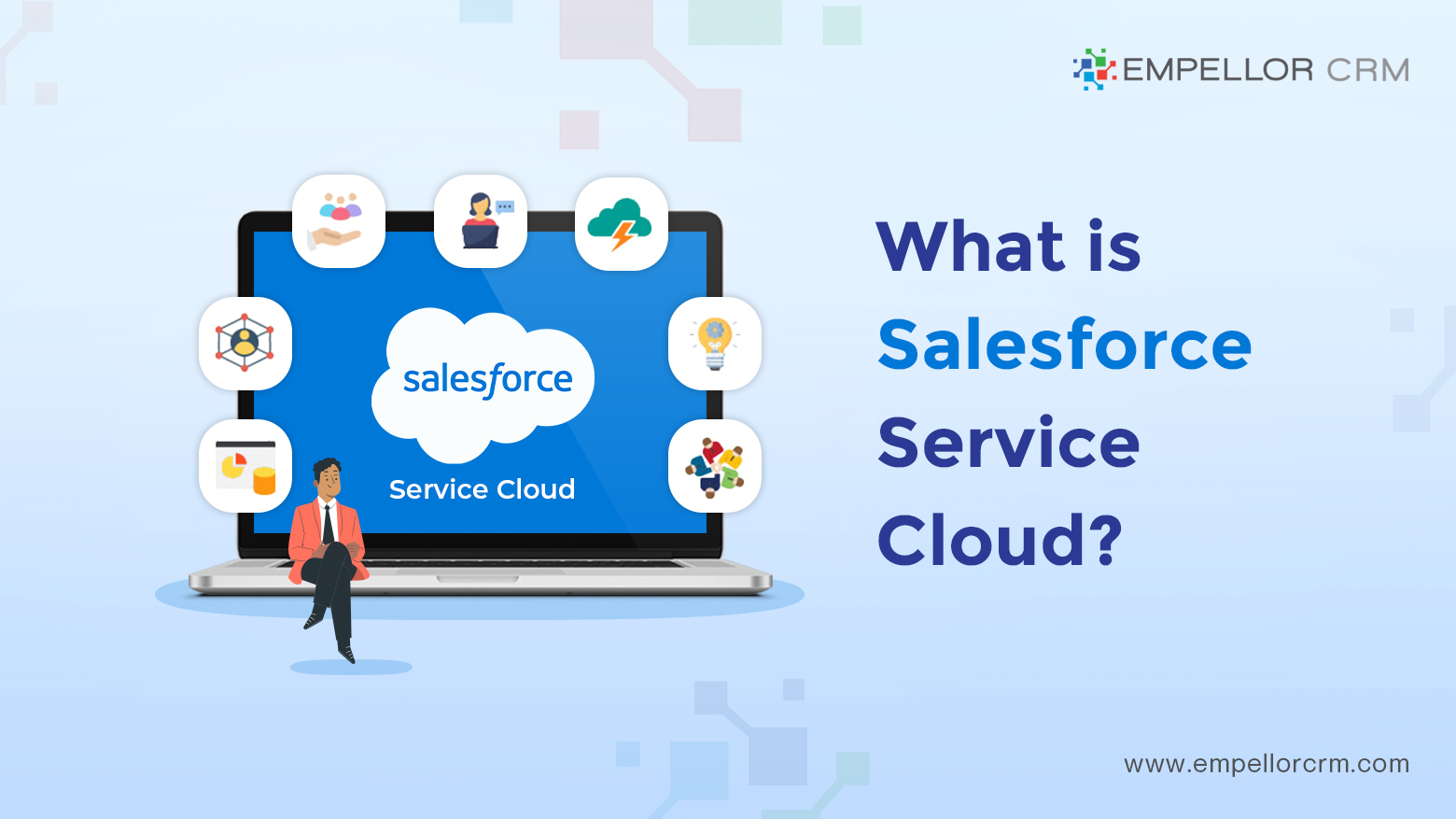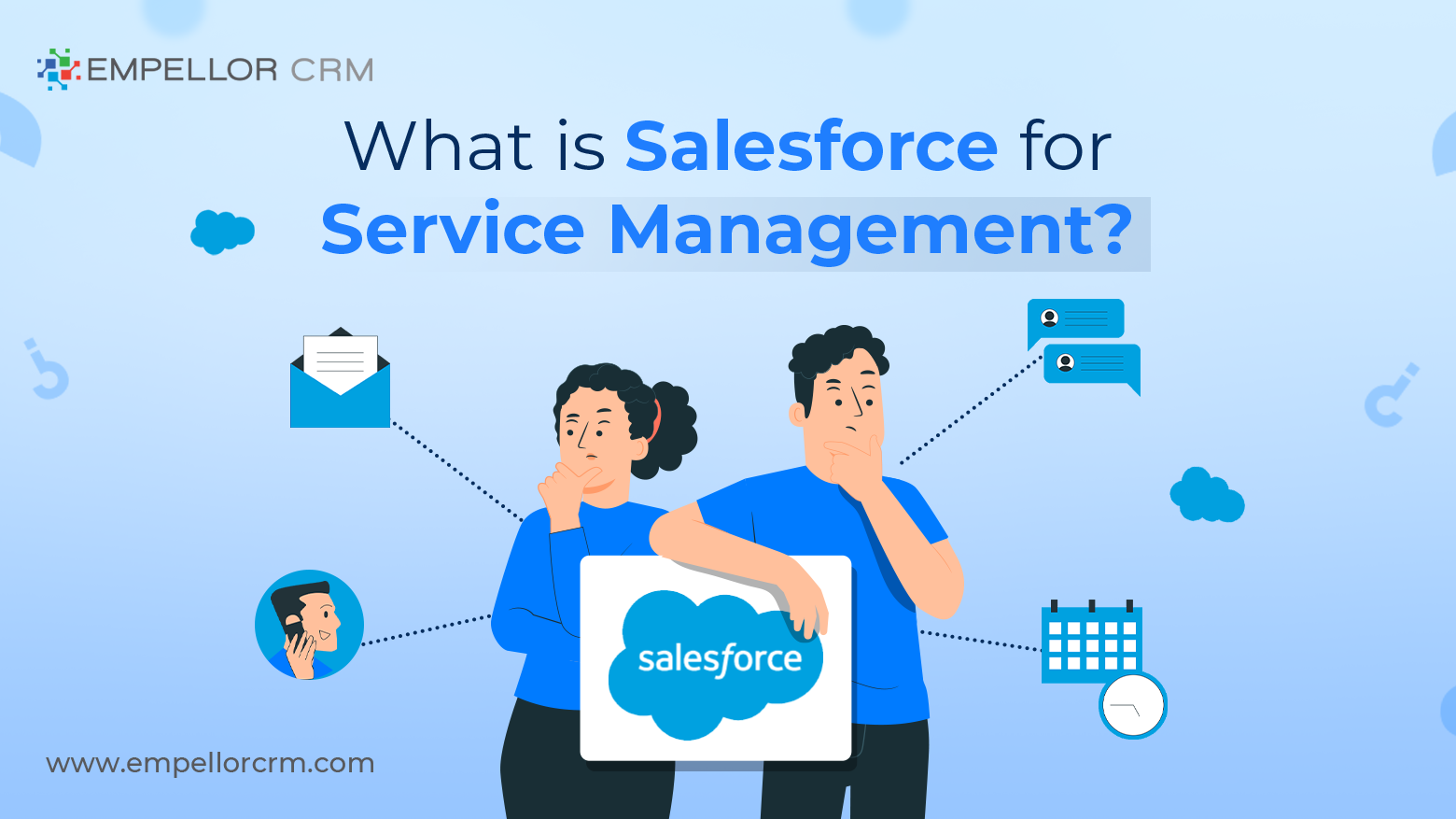Claim your free copy of the book CRM Shouldn’t Suck
Claim your free copy of the book CRM Shouldn’t Suck
Salesforce Service vs Sales Cloud: Which One is Right for Your Business?

In today’s competitive business landscape, choosing the right CRM platform is crucial for success. When it comes to Salesforce, two popular options are Salesforce Service Cloud and Salesforce Sales Cloud. Understanding the differences between Salesforce Service vs Sales Cloud can help you make an informed decision. This blog post will delve into these differences, highlight their unique features, and provide insights on which platform might be best suited for your business needs.
Introduction to Salesforce Service Cloud
Salesforce Service Cloud is designed to enhance customer support and service operations. It offers a comprehensive suite of tools that enable businesses to deliver personalized and efficient customer service. From case management to omnichannel support, Service Cloud ensures that customer issues are resolved quickly and effectively.
Key Features of Salesforce Service Cloud
- Case Management: Service Cloud’s robust case management system allows support agents to track, manage, and resolve customer inquiries seamlessly. It provides a 360-degree view of the customer, ensuring that agents have all the information they need at their fingertips.
- Omnichannel Support: One of the standout features of Service Cloud is its ability to provide support across multiple channels. Whether it’s phone, email, chat, or social media, Service Cloud ensures that customers can reach out through their preferred method.
- Knowledge Base: Service Cloud includes a knowledge base where support agents can access and share valuable information. This helps in resolving customer issues faster and improves overall efficiency.
- Automation and AI: With features like Einstein AI, Service Cloud automates routine tasks and provides intelligent recommendations, enhancing agent productivity and customer satisfaction.
Introduction to Salesforce Sales Cloud
On the other hand, Salesforce Sales Cloud is tailored for sales teams. It offers a range of tools and features that help sales representatives manage their sales processes, track leads, and close deals more efficiently. Understanding the core functionalities of Sales Cloud is essential when comparing Salesforce Service vs Sales Cloud.
Key Features of Salesforce Sales Cloud
- Lead Management: Sales Cloud provides robust lead management capabilities. It helps sales teams capture, track, and nurture leads throughout the sales pipeline, ensuring that no opportunity is missed.
- Opportunity Management: With Sales Cloud, sales reps can manage their opportunities more effectively. It offers tools to track the progress of deals, forecast sales, and identify potential roadblocks.
- Sales Forecasting: Accurate sales forecasting is crucial for any sales team. Sales Cloud’s forecasting tools provide insights into future sales trends, helping businesses plan and strategize accordingly.
- Automation and AI: Similar to Service Cloud, Sales Cloud also leverages Einstein AI to automate tasks, provide intelligent insights, and optimize the sales process.
Comparing Salesforce Service vs Sales Cloud
When comparing Salesforce Service vs Sales Cloud, it’s important to consider your business’s specific needs and goals. Both platforms offer unique features that cater to different aspects of business operations. Let’s delve deeper into their differences and similarities.
Focus and Purpose
- Salesforce Service Cloud: Primarily focuses on customer service and support. It’s designed to help businesses deliver exceptional customer experiences by resolving issues quickly and efficiently.
- Salesforce Sales Cloud: Geared towards sales operations. It aims to streamline the sales process, manage leads and opportunities, and ultimately boost sales performance.
Target Users
- Service Cloud: Ideal for customer support teams, service agents, and call centers. It’s perfect for businesses that prioritize customer satisfaction and need a robust support system.
- Sales Cloud: Best suited for sales teams, sales managers, and business development professionals. It’s designed for businesses that want to enhance their sales processes and improve revenue generation.
Key Functionalities
- Service Cloud: Offers features like case management, omnichannel support, and a knowledge base to enhance customer service.
- Sales Cloud: Provides tools for lead management, opportunity tracking, and sales forecasting to improve sales performance.
Integration and Customization
Both Salesforce Service Cloud and Sales Cloud offer extensive integration and customization options. They can be integrated with other Salesforce products as well as third-party applications, allowing businesses to tailor the platform to their specific needs.
Customization
- Service Cloud: Can be customized to fit the unique requirements of a customer support team. Businesses can create custom workflows, automate processes, and integrate with other support tools.
- Sales Cloud: Offers customization options to suit the needs of sales teams. Users can create custom sales processes, automate follow-ups, and integrate with marketing tools.
Integration
- Service Cloud: Integrates seamlessly with other Salesforce products like Marketing Cloud and Commerce Cloud, providing a unified customer experience.
Sales Cloud: Can be integrated with tools like Salesforce Marketing Cloud and Pardot, ensuring that sales and marketing efforts are aligned.
Benefits of Salesforce Service vs Sales Cloud
Understanding the benefits of Salesforce Service vs Sales Cloud can help businesses choose the right platform based on their objectives.
Benefits of Salesforce Service Cloud
- Enhanced Customer Satisfaction: Service Cloud’s comprehensive support tools ensure that customer issues are resolved quickly, leading to higher satisfaction levels.
- Improved Agent Productivity: Automation and AI features reduce the workload on support agents, allowing them to focus on more complex tasks.
- Seamless Omnichannel Support: Customers can reach out through their preferred channels, ensuring a consistent and seamless support experience.
Benefits of Salesforce Sales Cloud
- Increased Sales Efficiency: Sales Cloud’s tools streamline the sales process, enabling sales teams to close deals faster and more efficiently.
- Better Sales Insights: With robust reporting and forecasting tools, businesses gain valuable insights into their sales performance and trends.
Enhanced Lead Management: Sales Cloud helps sales teams manage and nurture leads effectively, increasing the chances of conversion.
Choosing Between Salesforce Service vs Sales Cloud
Deciding between Salesforce Service vs Sales Cloud depends on your business’s specific needs. If your primary focus is on delivering exceptional customer support, Service Cloud is the way to go. However, if you aim to boost your sales operations and manage leads more effectively, Sales Cloud is the better choice.
Factors to Consider
- Business Goals: Determine whether your primary goal is to enhance customer service or improve sales performance.
- Team Requirements: Consider the needs and workflows of your customer support and sales teams.
- Budget: Evaluate your budget and choose the platform that offers the best ROI for your business.
Integration Needs: Assess your current technology stack and determine which platform integrates better with your existing tools.
Conclusion
In conclusion, both Salesforce Service Cloud and Salesforce Sales Cloud offer powerful features that cater to different business needs. Understanding the differences between Salesforce Service vs Sales Cloud is essential for making an informed decision. By evaluating your business goals, team requirements, and integration needs, you can choose the platform that best aligns with your objectives. Whether you prioritize customer service or sales performance, Salesforce has a solution that can help you achieve your goals.


